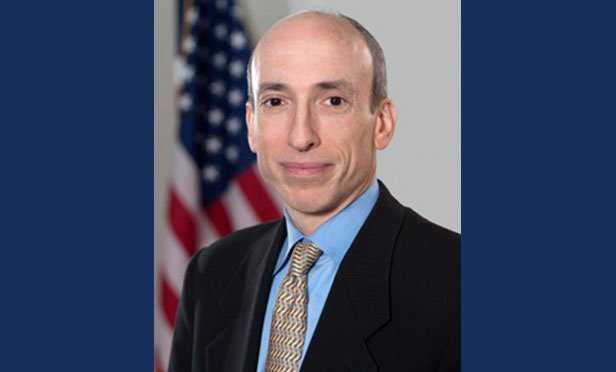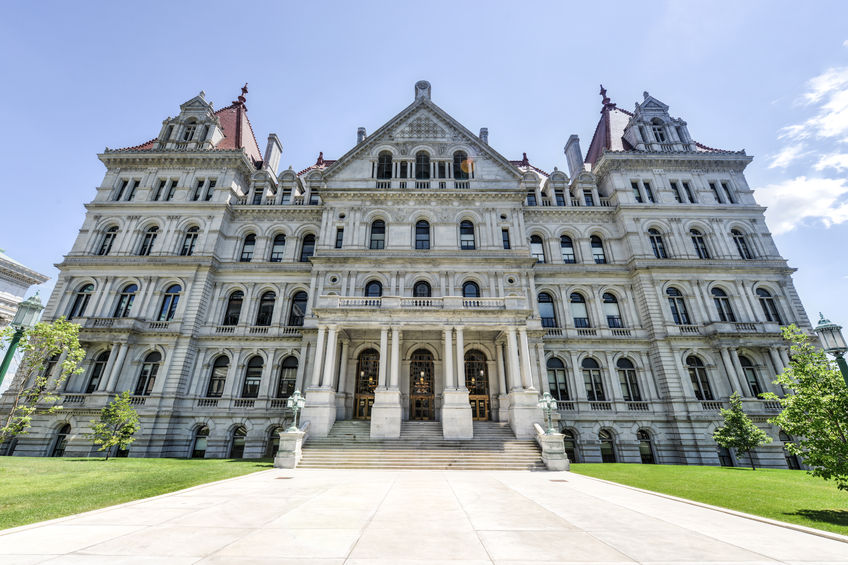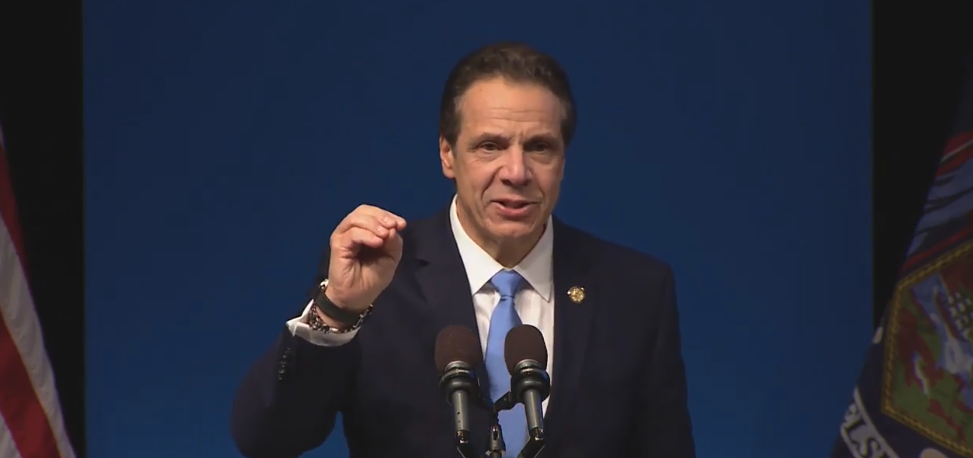Kevin Travers was a Reporter at deBanked.
Articles by Kevin Travers
Earnings Week: PayPal
February 3, 2021PayPal held their earnings results for Q4, describing its strongest year in history by chief executive Dan Schulman.
In Q4 alone, PayPal added 16 million net new million active customers and 1.4 million new merchants and raised $6 billion in revenue. That brings the total to 377 million new users for the entire year.
After adding cryptocurrency to the platform, Schulman said that users that bought virtual assets log in twice as frequently as they did before.
“We have seen an exceptional response to pour crypto launch,” Schulmann said. “The crypto volume traded on our platform greatly exceeded our projections.”
The payments by-now-pay-later product added raised $750 million in the last quarter.
Super Bowl Sunday: Battle of the Mortgage Brokers
February 2, 2021 This Sunday in Tampa Bay, the Chiefs, and the Buccaneers will duke it out, while a second mortgage-based rivalry plays out in the ads between plays.
This Sunday in Tampa Bay, the Chiefs, and the Buccaneers will duke it out, while a second mortgage-based rivalry plays out in the ads between plays.
A year ago, millions watched as Rocket Mortgage and United Wholesale Mortage (UWM) went head-to-head with competing multi-million-dollar ads. This year, they will both return, but it looks like they might play nice after a grueling pandemic.
Last year, Rocket appeared for their third consecutive Super Bowl, but then in an upset came the #BrokersAreBetter ad campaign. UMW called out their biggest competitor: “Playing with rockets is great when you’re a kid, but when it’s time to get a mortgage, you quickly realize a rocket is complicated and expensive,” and promoted FindAMortgageBroker.com.
It was a jab that earned millions of tweets, but this year Rocket has a chance to reply, and “double down” with two ads, this time highlighting local brokers as well. Rocket Companies today launched a national mortgage broker directory on its website.
“The directory not only includes the 43,000 individual loan officers who work with us but every mortgage broker in the country,” said Austin Niemiec, the executive vice president of Rocket Pro TP, in a statement. “This new resource is not about us; it’s about giving consumers more choice and assuring they know how an independent loan officer in their community can help them.”
UWM is also running an ad showing an imaginary tinder-swiping house hunting app, again featuring the FindAMortgageBroker.com directory.
“We believe we’re the one genuine partner of mortgage brokers nationwide,” said Sarah DeCiantis, chief marketing officer of UWM, in a statement. “We thought this ad would not only be relatable and entertaining given the pandemic’s acceleration of online dating but also educate consumers that brokers are their number one resource for finding a mortgage that fits their financial situation.”
Both firms are deciding to buy ads while other major brands are pulling out; For example, Budweiser’s decision to put ad money toward covid vaccine distribution. These brands will be saving money, as a 30-second spot during the Super Bowl runs for an estimated $5.5 million, the AP reports.
Next year’s Super Bowl 56, will be played in SoFi Stadium.
Doorvest Raises $2.5M in VC Funding
January 27, 2021 San-Francisco based online real estate investment firm Doorvest announced today it received $2.5 million in VC funding with Mucker Capital leading the round.
San-Francisco based online real estate investment firm Doorvest announced today it received $2.5 million in VC funding with Mucker Capital leading the round.
Doorvest used the opportunity to announce a “Home Renovation Guarantee,” a pledge to cover all renovation-related repairs and maintenance on a new investment property for the first year.
Doorvest offers users an online platform to invest a range of $20,000 to $100,000 in rental properties. The firm handles everything from purchasing the properties to renovating, and leasing; paying the dividends back to investors.
“The true cost of hidden repairs and maintenance during the first year of homeownership often comes as a surprise as it’s difficult to predict,” CEO and Co-Founder of Doorvest Andrew Luong said. “We’ve found that the biggest mental hurdle to purchasing an investment home is the uncertainty of maintenance costs and repairs.”
 The new funding adds to the total $3.6 million the firm has raised to date, aimed toward bringing retail-investor liquidity to the estimated $3 trillion real estate market. William Hsu, the co-founder of Mucker Capital, will be joining Doorvest’s board of directors. According to the Federal Reserve, Americans who invest in real estate are on average worth 40x more than Americans with no skin in the game, Hsu said.
The new funding adds to the total $3.6 million the firm has raised to date, aimed toward bringing retail-investor liquidity to the estimated $3 trillion real estate market. William Hsu, the co-founder of Mucker Capital, will be joining Doorvest’s board of directors. According to the Federal Reserve, Americans who invest in real estate are on average worth 40x more than Americans with no skin in the game, Hsu said.
“While real estate is the #1 most favored investment asset class for Americans, only 5% of Americans own investment real estate,” Hsu said. “Doorvest’s platform has hit a nerve since launch. It has seen a 32% month-over-month increase in customers since the pandemic hit. This entirely online model naturally gains more appeal, and customers seek out safe yet easily accessible investment vehicles away from other volatile and inflationary markets.”
Newest Round of PPP Funding Faces Some New Technical Issues
January 26, 2021New technical issues are plaguing the latest round of PPP funding, according to Rob Nichols, the President and CEO of the American Bankers Association. On Monday, Nichols wrote to the acting heads of the SBA and Treasury addressing them.
Though thousands of businesses are awaiting forgiveness, the SBA’s online portal is not allowing a second loan to be processed unless pending first-round forgiveness applications are marked as complete. This runs contrary to the official SBA rules that state a borrower can apply if they can prove they spent their first loan correctly by the time they get a second.
“We urge SBA to fix this technical error and permit a lender to upload a borrower’s second draw PPP loan application irrespective of the status of the borrower’s First Draw Loan forgiveness application,” Nichols wrote. “More broadly, lenders are receiving a high number of incorrect error messages when the lender attempts to submit PPP loan applications through the portal.”
Part of those errors come from confusion Nichols writes, between previous guidance handed out by the SBA and current stipulations. Funders are unclear as to why a $30,000 per employee loan cap exists or why some borrowers found that the documentation they prepared to prove a 25% reduction of revenue met requirements two weeks ago but don’t meet the criteria recently, Nichols wrote.
Biden SEC Pick: MIT fintech professor, helped create Dodd-Frank
January 21, 2021 As President Biden’s executive appointments await senate approval, crypto and security holders will be waiting anxiously for one in particular: Gary Gensler. A seasoned financial expert in and out of the public and private sector, Gensler most recently taught blockchain finance classes at the MIT Sloan School of management. What will this crypto researcher bring to the SEC?
As President Biden’s executive appointments await senate approval, crypto and security holders will be waiting anxiously for one in particular: Gary Gensler. A seasoned financial expert in and out of the public and private sector, Gensler most recently taught blockchain finance classes at the MIT Sloan School of management. What will this crypto researcher bring to the SEC?
By looking at his past research topics, and class syllabi, there may be some foreshadowing. Much of his focus has been on emerging fintech in business. Gensler doesn't just support innovation in banking and finance; he has been actively teaching grad students how to build blockchain-based businesses for the past couple of years.
Last spring, he taught a course called "Fintech: Shaping the Financial World" focused on leveraging blockchain tech and AI.
"This technology has real potential as a catalyst for change in the world of finance and the broader economy," Gensler said in testimony before Congress. “Though there are many technical and commercial challenges yet to overcome, I’m an optimist and want to see this new technology succeed.”
When it comes to regulation, Gensler is light, explicitly stating in an interview with another MIT researcher, “we must preserve the freedom for firms to fail,” and that “it’s best to show some flexibility.” While it is true that activity of any significant size has to be contained within the current regulatory framework,” Gensler said, “the government should put smaller firms in “a regulatory sandbox.”
Before teaching about bitcoin, Gensler worked at Goldman Sachs, where he made partner by 30 years old, the youngest ever to make partner at the time. He went on to lead the team that advised the NFL in the most lucrative TV in history in 1990.
After leaving Goldman, Gensler worked in the US Treasury and eventually chairman of the Commodity Futures Trading Commission under Obama. Though he calls for easy regulation for smaller firms, His work at the CFTC following the 2008 financial crisis culminated in the 2010 Dodd-Frank act.
When it comes to cryptocurrencies, Gensler has said the regulatory framework would “guard against illicit activities, protect investors and their funds, and promote market integrity.”
He has said cryptocurrency, in general, is both a security and a commodity. Some coins like Ripple are more securities, while Bitcoin is not.
Shark Tank’s Kevin O’Leary: Bitcoin Not Ready to Swim With The Big Fish
January 15, 2021 Mr. Wonderful, the Shark Tank multimillionaire, recently said that while Bitcoin may be going through an exciting price discovery phase, it is not liquid enough to garner genuine institutional interest.
Mr. Wonderful, the Shark Tank multimillionaire, recently said that while Bitcoin may be going through an exciting price discovery phase, it is not liquid enough to garner genuine institutional interest.
“If I want to buy a million dollars’ worth of Bitcoin right now, I’ve gotta do a fair amount of work to pull that off,” he said. “I can’t get consistency with any single regulator on endorsing bitcoin for me to actually do a significant transaction.”
The price of Bitcoin grew significantly at the end of 2020, in three months quadrupling to reach $41k at it’s height. Still, as O’Leary explained on the popular finance podcast “The Pomp” and shared on the O’Leary youtube channel: cryptocurrency is nothing compared to other asset classes.
“Bitcoin is still a nothing-burger,” he said, “a giant nothing-burger.”
Before the asset class becomes big enough for the largest whales to sink billions into as an asset class, cryptocurrencies will have to change. It is simply too challenging to put money in and take money out, and unclear how that will be taxed or regulated in a personal or institutional portfolio.
In the future, O’Leary expects major regulation to approach the crypto space, as evident recently with the SEC charging U.S.-based Ripple over its XRP token.
“Give me the top seven cryptocurrencies, put them into an ETF wrapper, and let me invest in it with liquidity,” O’Leary said. “So that if I want to buy a million dollars of it in the morning and sell a million dollars in the afternoon, I can do that in an ETF format.”
But one thing that cryptocurrency proves, O’Leary said, is that traditional asset classes can be sold 24/7 just like digital currencies.
“Maybe what Bitcoin is telling us is we should have liquidy perpetually, pure price discovery because its always breakfast somewhere in the world,” O’Leary said. “It may be the way of the future, and in a way, if that happens, there would be less demand for something like Bitcoin.”
Affirm Goes Public at $11.9B Valuation and Climbing
January 13, 2021Affirm, an online buy-now-pay-later platform, was listed on the Nasdaq on Wednesday at $49 a share under the ticker AFRM. Based on outstanding shares sold to IPO investors, the company saw an $11.9B valuation. Minutes after public sales began at noon, the price shot up to $100/share.
Company founder Max Levchin spoke through the big Nasdaq screen in Times Square as he virtually rang the starting bell. Levchin championed the hard work of the Affirm team.
Hear from the CEO of @Affirm, Max Levchin (@mlevchin) on the company improving the lives of consumers by empowering shoppers with honest financial products. @Affirm joins us this morning to ring the Opening Bell in honor of its IPO. #AFRM pic.twitter.com/QfkZsgXItM
— Nasdaq (@Nasdaq) January 13, 2021
Affirm makes money when a customer uses their tech to make a purchase at the point-of-sale.
Levchin is a member of the “PayPal mafia,” a co-founder of the online payments firm that went on to establish massively successful tech startups. Members of the “mafia” include Tesla’s Elon Musk, Linkedin chairman Reid Hoffman, and Yelp founder Jeremy Stoppelmen.
After publishing earnings this summer, the San Francisco-based firm filed for an IPO on Nov 18. The move revealed revenue of $465M for the first 3 quarters of 2020 with a $66M net loss.
Embedded with the company’s S-1, were comments from Levchin that said:
“The barely-readable fine print makes only one thing clear to consumers: You’ll never know exactly what your purchase will really cost you,” Levchin wrote. “With most of the payments industry deriving profits from late fees, overdraft charges, and gimmicks like deferred interest, it’s not hard to agree that there has to be a better way; it’s time to evolve payments again.”
Levchin took to Twitter to post about the firm, championing the millions of transactions the platform has serviced since 2013, all without one late fee.
“More than eight years ago, we set out to take on credit cards and change the way we pay,” Levchin wrote. “We built Affirm from the ground up to align with the needs of consumers and merchants and to succeed when they succeed.”
Double Dipped: What’s Next For New York’s Small Business ‘Truth in Lending’ Act
January 11, 2021 Last year, when the Small Business ‘Truth in the Lending’ bill came through the New York State Senate Banking Committee, Senator George M. Borrello said he and other members went to work. Their job: to write a version everyone would like, which fell apart when the bill passed in July and it was signed into law just before Christmas.
Last year, when the Small Business ‘Truth in the Lending’ bill came through the New York State Senate Banking Committee, Senator George M. Borrello said he and other members went to work. Their job: to write a version everyone would like, which fell apart when the bill passed in July and it was signed into law just before Christmas.
“I’m a small business owner myself, but I also come from local government, and in local government, the committee is where the work gets done,” Borrello said. “We had the opportunity to fix this in committee. By the time it got to the floor, the governor basically reversed all the things I presented that were flaws, and he signed it.”
That’s the story of how S5470B came to be in Albany. Instead of ironing out the kinks in committee, Borrello said he watched as the bill with all its problems passed over the summer. There was a process to clean it up afterwards to make it suitable for Governor Andrew Cuomo’s signature, since it’s said that even he himself had expressed reservations about the language. But then he signed the original version and all the edits were discarded.
 Politics are suspected to have played a role in that.
Politics are suspected to have played a role in that.
“When the governor finds something is flawed, he usually vetoes and sends it back,” Borrello said. “It concerns me that there is an underlying political angle that has nothing to do with the Truth in Lending.”
Steve Denis, the executive director of the Small Business Finance Association, said that he doesn’t think that the signed bill that is up on the state senate website will be the final version.
“It is so poorly drafted that even companies that support the bill have liability and will be the first to get sued,” Denis said. “The SBFA will be a lot more aggressive; the legislature has a lot to work on in the next session. It has been a wake-up call, unifying the industry. We will be more aggressive to create a more favorable version.”
Denis has attested to the harm the bill will do to the SMB finance industry in New York, costing billions of dollars in fines and litigation. He pointed out that major companies like PayPal have fought against the bill, and the proponents “recognized it was not a good bill, but passed it to fix it.”
Borrello said that it is common in Albany to encounter legislation written by lawmakers who don’t understand small business owners who deal with regulation every day. Borrello and his wife worked in the hospitality business for years before going into public service. Borello said he feels business owners’ pain during the pandemic, especially in the restaurant and hotel industry.
He said the end result of this new bill when it comes into effect this July: funding and lending companies will stop providing services in New York State, directly harming the small businesses the bill claims to help.
“One of my frustrations, being on the banking committee, is that we do things that ultimately make it more difficult for people to access credit and financing in New York State,” Borrello said. “You’re talking about small businesses that are already hurting, having financial difficulties accessing lines of credit. This disclosure law passing during this pandemic is one more nail in the coffin for small business.”
 The Legislature, the Governor, and the Department of Financial Services (DFS) all reportedly had issues with the bill: yet it passed. Borrello said a problem with “nonsense lawmaking” comes from competition with other states. New York compares itself with California to “prove we’re the most progressive.” Borrello also pointed out that California passed its version of a lending disclosure bill more than two years ago, and their version of the DFS still cannot find a way to calculate an APR metric for factoring or MCA.
The Legislature, the Governor, and the Department of Financial Services (DFS) all reportedly had issues with the bill: yet it passed. Borrello said a problem with “nonsense lawmaking” comes from competition with other states. New York compares itself with California to “prove we’re the most progressive.” Borrello also pointed out that California passed its version of a lending disclosure bill more than two years ago, and their version of the DFS still cannot find a way to calculate an APR metric for factoring or MCA.
As the bill was argued on the legislative floor, Borrello brought up the controversial “double-dipping” term that had been inserted in the language. Borrello came to the same conclusion as Denis, that there is no double-dipping term: It was just conjured up for the bill to sound scary, negative, and damaging.
“Other than talking about potato chips, I’m not sure what you’re talking about,” Borrello said. “When you haven’t defined it, in the legislature, it comes down to a political talking point and dog whistle. You enshrine a rather vague piece of jargon in the legislation, and it shows how deeply flawed it is.”
Borrello now plans to work with the Governor, DFS, and legislature to amend and change the bill. He is also fighting for a Republican banking overhaul to provide further credit access to small businesses.
“The next step now is to go back and see what needs to be fixed,” Borrello said. “Hopefully, my role now as the ranking member of the banking committee, we can have a common-sense conversation about how to actually fix it.”































